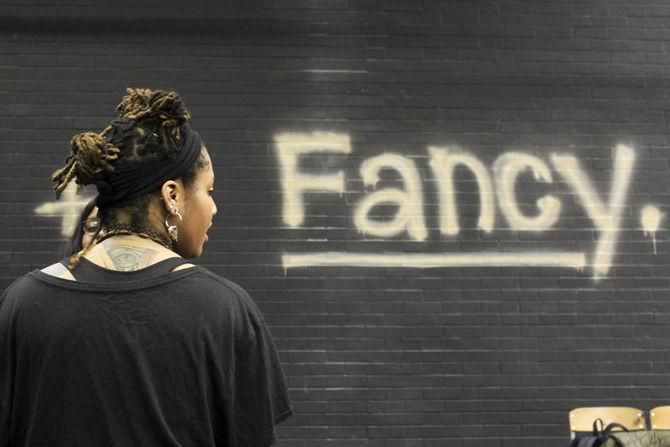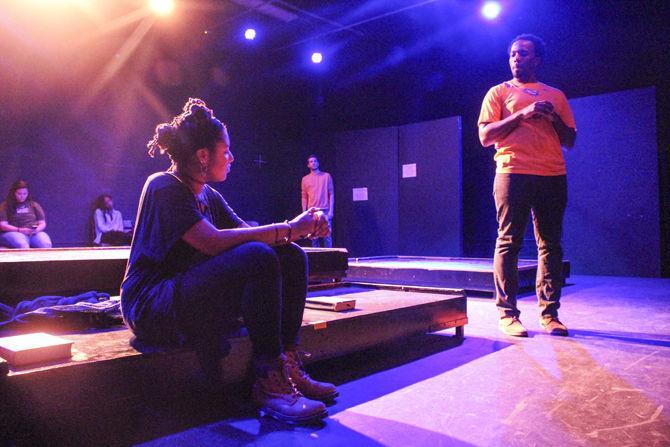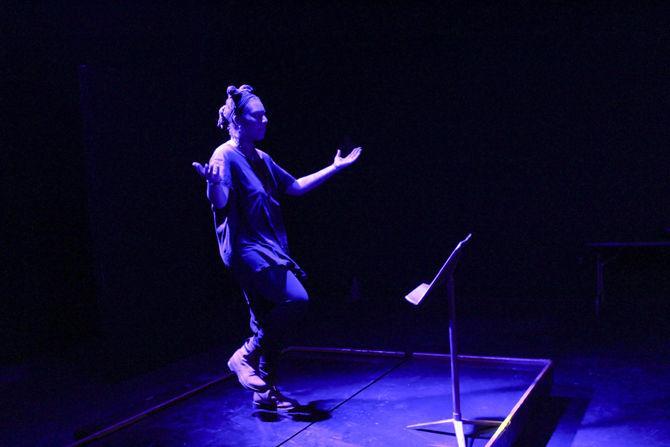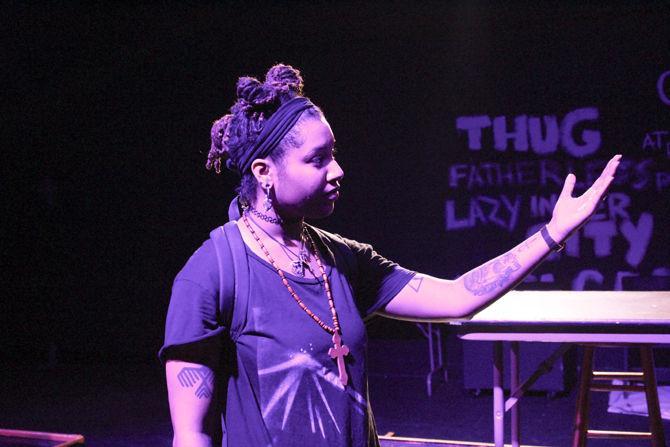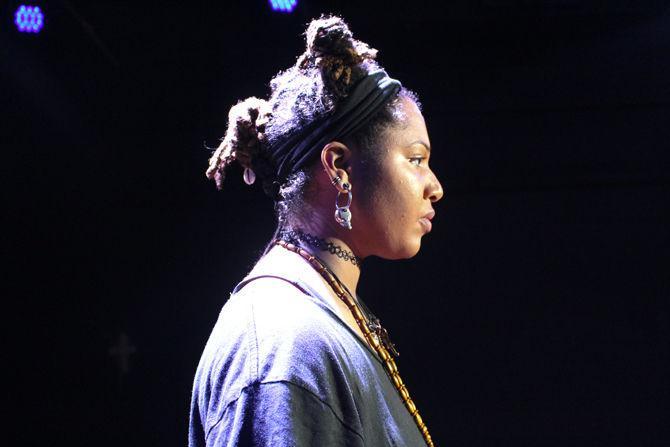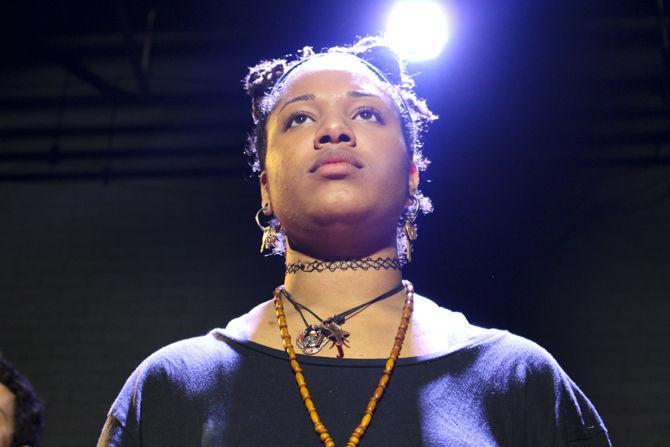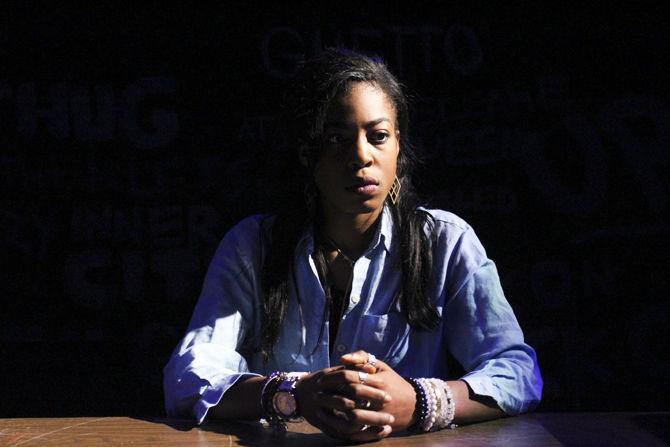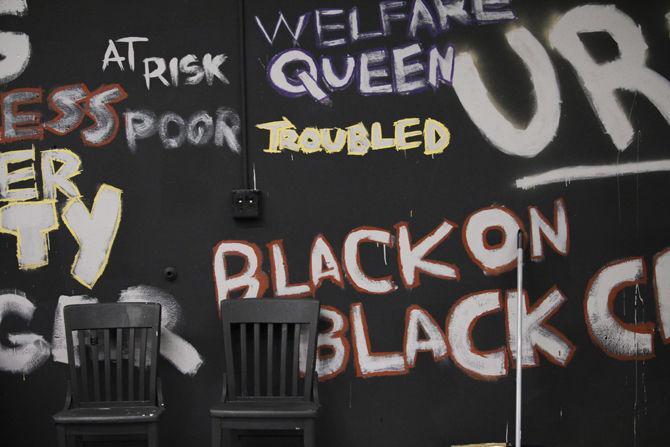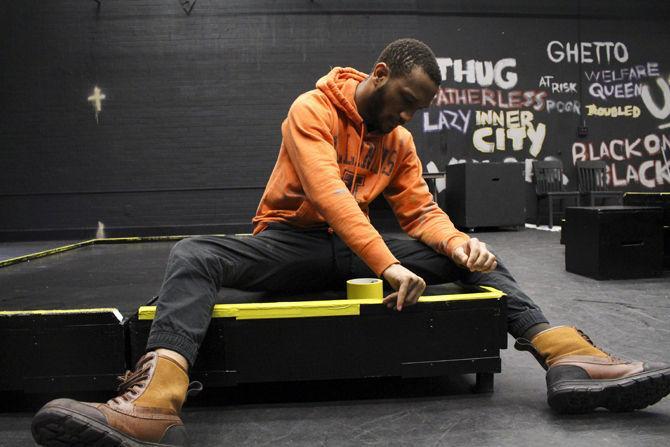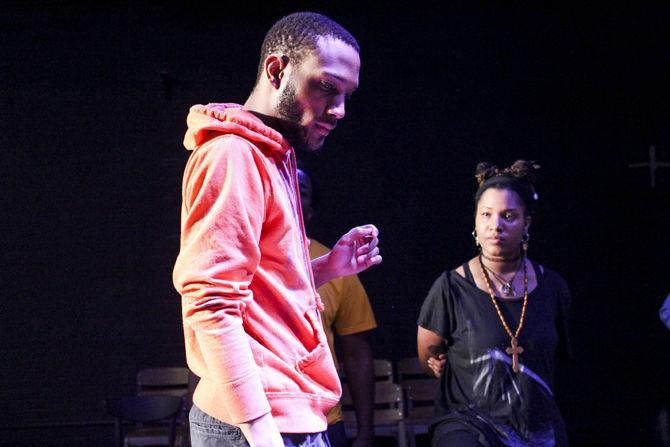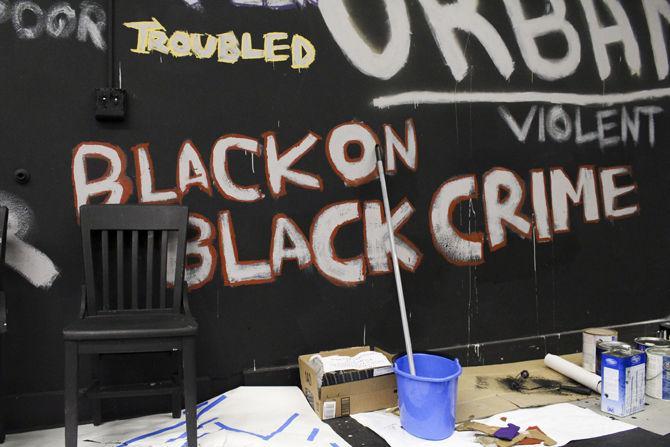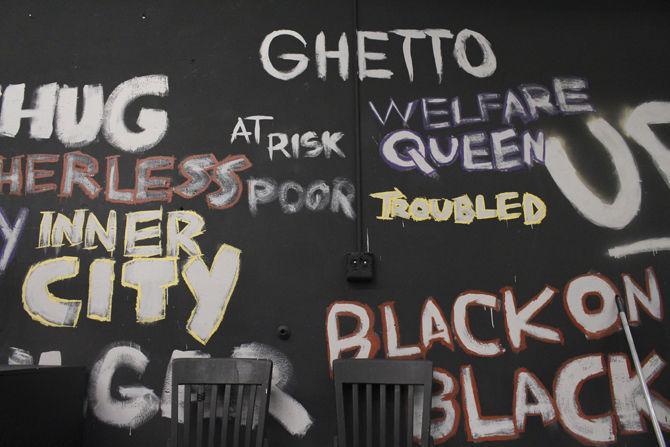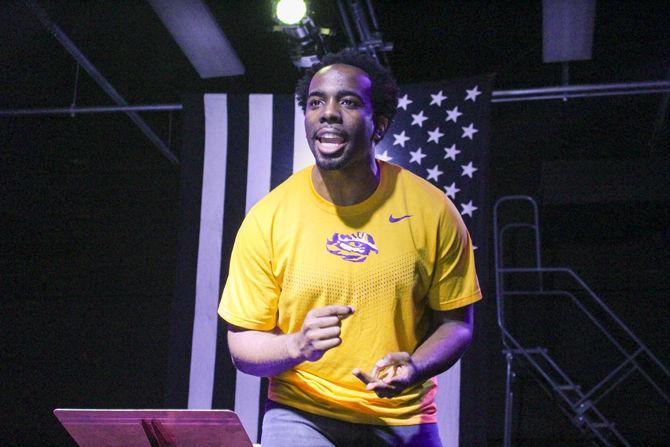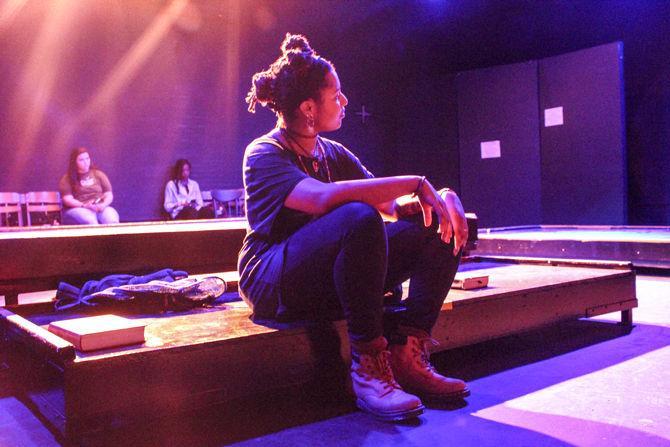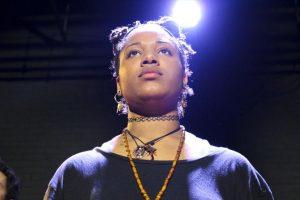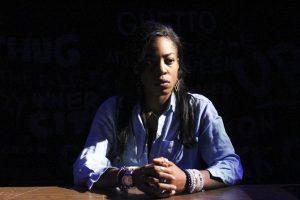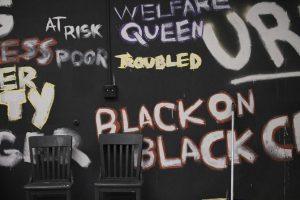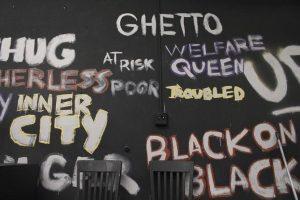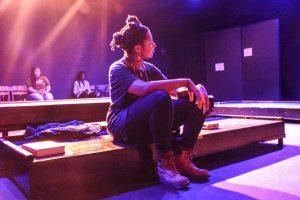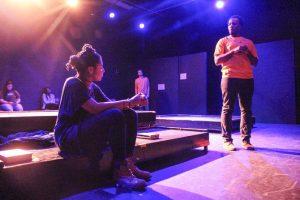“Black Enough,” which focuses on bringing racial and cultural themes to the surface, opens this Wednesday in HopKins Black Box Theatre.
English senior Akeem Muhammad serves as the play’s writer and director. Muhammad is also editor-in-chief of LEGACY Magazine. He said the inspiration for “Black Enough” originated from Rod Serling’s “The Obsolete Man” episode of “The Twilight Zone.” Muhammad instantly noticed parallels between the episode and recent events in the black community and wrote a theatrical adaptation as his senior thesis project.
Sociology and communication studies senior Stephonie Rodgers, who plays the secretary and the new chancellor, said the play’s work is meant to have a visual effect on campus concerning cultural awareness.
“It gives them the opportunity to see us reach out to the black community in a different way,” Rodgers said. “You see lectures, discussions, panels, but have you ever just sat and watched a show on campus? We don’t ever see that type of performance on LSU’s campus. It’ll give people a different perspective to just sit and watch and see how somebody can create something that embodies these issues in the black community.”
The play is set in a dystopian society where martial law, or “the state,” governs. It centers on Amaan Black, a millennial student who wants to attend college in a world where books are prohibited. She gets put on trial for her “crimes,” which are punishable by death. Unknown to the governing baby boomer generation, Black has a plan to provoke a movement and expose the state’s hypocrisy to dissemble the totalitarian regime.
The play inspects major themes like the effects of society’s impact on culture and humanity’s perception of the world. Muhammad’s writing delves into the psychology behind actions based on W.E.B. Du Bois’ theory of double consciousness. This leads to the pinnacle revelation in the play, revealing its’ underlying theme.
Higher education administration graduate student Marlon Green said “Black Enough” considers generational differences in addition to racial and cultural divides. It goes beyond the black vs. white dynamic into black vs. black and the interior of a culture. It doesn’t necessarily draw a protagonist vs. antagonist narrative, but rather blurs the lines on purpose so neither generation is guiltier than the other.
Muhammad said the goal of the production is to ignite a conversation among the audience that will continue past the play’s three day run. He wants “Black Enough” to inspire thought, debate and awareness.
Green plays the chancellor.
“We have to start truly understanding what our culture is and understanding what is important and what isn’t important,” he said. “It’s not just a battle against people who are racist and hold us back, but people within our own culture who are not helping us to advance.”
Green said the goal for both sides of the story is to truly understand each other, and this occurs by keeping the plot ambiguous so that audience members will discuss it with one another.
Green said while “Black Enough” contains incidents relevant to the black community, the elements in the play can be substituted with those of any other racial community and have the same effect.
“There is stuff like this in every culture. The true way to be able to grow is to grow within our own culture, and then as a culture unite and teach the other cultures how we operate,” he said.
After the play leaves its stage at the University, Muhammad said he plans on taking “Black Enough” to other universities including Southern, Xavier and University of New Orleans.
He will also present it at a New Orleans performance festival and the National Communication Association’s annual conference. The production’s longevity has been ensured, as it recently achieved its $3,000 goal on Kickstarter.
Rodgers said the generational divide is evident in society and how the image is a large factor contributing to public perception.
“I think this play really speaks one thing that kind’ve touches me is that people give up on this generation,” she said. “People are so quick to dismiss us because we don’t conform to previous leaders like Martin Luther King, Jr.”
Since many young people have powerful or different thoughts, Rodgers said taking the time to listen makes all the difference.
“We’re just as powerful as they are, but people don’t want to see past our age and our style,” Rodgers said.
“Black Enough” runs Feb. 3-5 at 7:30 p.m. in HopKins Black Box Theatre in 137 Coates Hall at LSU. There is no cost for admission, although donations are welcomed at the door.
Student-produced play ‘Black Enough’ starts racial discussion on campus
February 1, 2016
Jasmine Herndon prepares for rehearsal of LSU Senior English major, Akeem Muhammad’s self-written and directed the play “Black Enough” for his senior thesis, which will debut on February 3-5, 2016 in the LSU HopKins Black Box Theatre.
More to Discover


